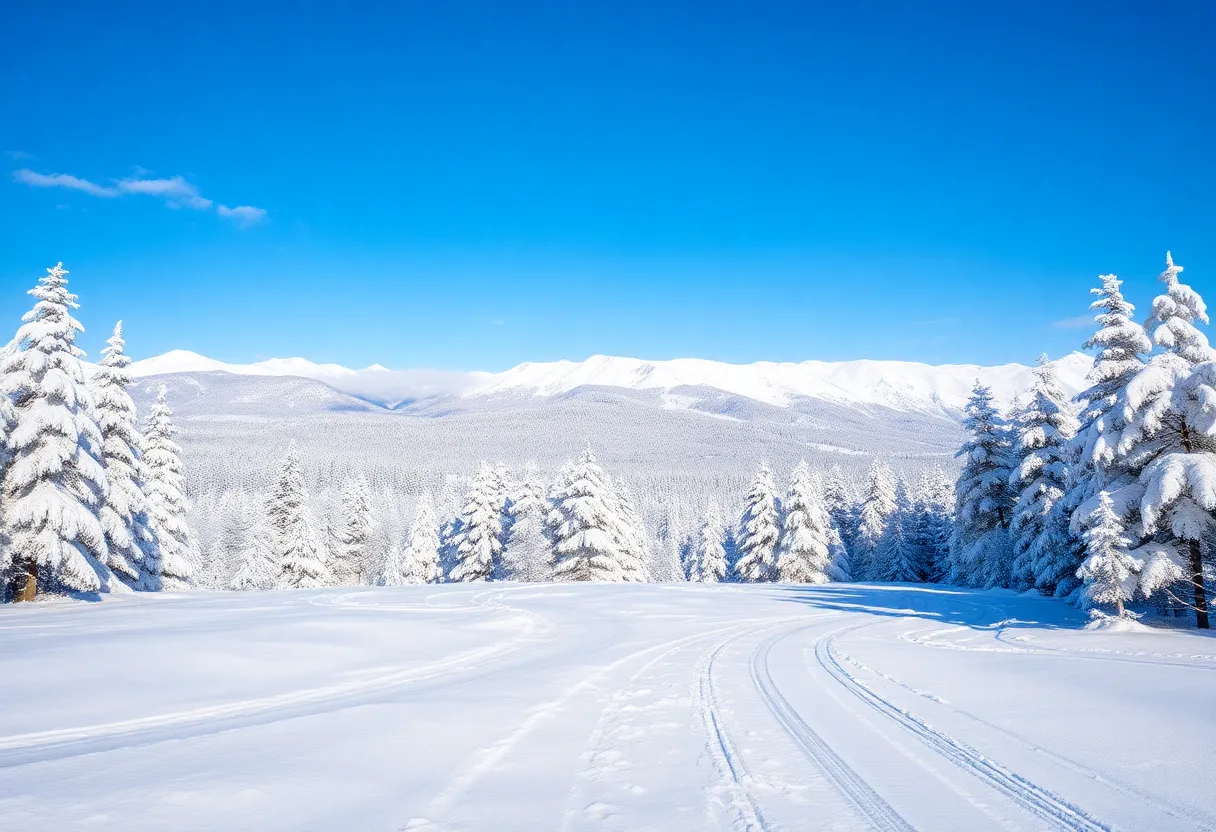News Summary
The National Weather Service has released a forecast predicting a colder and snowier winter for northern regions of the U.S. and Canada. This contrasts the milder season of the previous year, driven by La Niña and increased solar activity. Regional forecasts indicate significant snowfall in the Northeast, Great Lakes, and parts of Canada, while the Southeast will be warmer and wetter. Skiers can expect improved conditions for winter sports as precipitation increases across these areas. Continuous updates and planning tips are encouraged for winter enthusiasts.
New York
The National Weather Service has released its winter forecast for 2025-2026, predicting a colder and snowier season for northern regions of the United States and Canada. This forecast is a sharp contrast to the milder winter experienced in 2024-2025, largely due to the influence of a strong La Niña and an increase in solar activity from Solar Cycle 25.
The forecast leverages a combination of solar science, climatology, and meteorology to provide insights into anticipated weather patterns. Important considerations include sunspot activity, historical climate data, and ocean phenomena such as La Niña, which is expected to dominate the 2025-2026 winter conditions. The forecast aims for 60-80% accuracy, with previous predictions achieving around 65% accuracy attributed to the unpredictability of El Niño.
Regional Forecasts
Northeast
For the Northeast, the forecast indicates temperatures will be 2-3°F below normal, with snowfall expected to be 5-10% above average. Cold snaps are anticipated around mid-January and early March, with significant snowfall expected in early December, late January, and mid-February. This contrasts markedly with the previous year, where temperatures were 1-2°F above normal with below-average snowfall. Ski enthusiasts will likely enjoy better powder days, with projected snowfall reaching 60-70 inches compared to 50-60 inches last winter.
Atlantic Corridor
The Atlantic Corridor will experience a milder and wetter winter, with temperatures expected to be 2-4°F above average. There will be an increase in precipitation, primarily as rain, with limited snow expected mainly in mid-December, early February, and late March. In contrast, the previous winter recorded near-average temperatures and minimal snowfall, leading to a 10-15% increase in precipitation this year, which may reduce the available skiable snow.
Great Lakes
The Great Lakes region is forecasted to see cold and snowy conditions with temperatures 3-5°F below normal and snowfall projected to be 15-20% above average. This change offers better skiing opportunities, especially in late January and early February. Last winter was notably milder, falling below the average snowfall, which was 40-50 inches. The comparison for this year shows an increase with expected snowfall of 50-60 inches.
Southeast
The Southeast region is predicted to have a warmer and wetter winter with temperatures 3-5°F above average. Increased rain and minimal snow are anticipated, which stands in contrast to the previous year’s cooler and drier conditions. This year’s forecast indicates a 20-25% increase in precipitation, making skiing and winter activities nearly impossible.
Pacific Northwest
The Pacific Northwest is expected to experience varying conditions, with northern areas predicted to be cold and snowy, showing 10-15% more snowfall than average. Conversely, southern areas will be milder and wetter, dominated by rain. Last winter was milder with average precipitation, making this a notable seasonal shift.
Canada
In Canada, regions like Ontario and eastern Manitoba are projected to encounter cold and snowy conditions, with an expected 20% increase in snow relative to historical averages. British Columbia and Alberta will experience cool and wet conditions. Last winter, Ontario saw milder temperatures with below-average snowfall, while the upcoming forecast suggests it could be 3-5°F colder with more significant snow accumulation.
General Trends and Conclusion
Overall, the 2025-2026 winter forecast highlights a trend toward colder and snowier weather in northern regions, in stark contrast to the milder and drier conditions observed during the previous winter. Skiers and outdoor enthusiasts can look forward to improved conditions in the Northeast, Great Lakes, and parts of Canada, driven largely by the impact of La Niña. Meanwhile, southern areas are likely to experience increased rainfall, reducing opportunities for winter sports.
Skiers are encouraged to follow practical planning tips and stay updated with ongoing forecasts to maximize enjoyment during the upcoming ski season.
Deeper Dive: News & Info About This Topic
- Unofficial Networks: 2026 Winter Weather Forecast Compared to Last Winter
- Fox 35 Orlando: Florida Winter Storm Updates January 22, 2025
- Axios: Snow Winter Storm in the US South
- Jacksonville: Winter Storm 2025 Snow and Ice Totals
- Wikipedia: Winter Weather

Author: STAFF HERE PETERSBURG WRITER
The ST PETERSBURG STAFF WRITER represents the experienced team at HEREStPetersburg.com, your go-to source for actionable local news and information in St Petersburg, Pinellas County, and beyond. Specializing in "news you can use," we cover essential topics like product reviews for personal and business needs, local business directories, politics, real estate trends, neighborhood insights, and state news affecting the area—with deep expertise drawn from years of dedicated reporting and strong community input, including local press releases and business updates. We deliver top reporting on high-value events such as Grand Prix of St. Petersburg, Localtopia, and SHINE Mural Festival. Our coverage extends to key organizations like the St. Petersburg Area Chamber of Commerce and St. Pete Downtown Partnership, plus leading businesses in finance, manufacturing, and healthcare that power the local economy such as Raymond James Financial, Jabil, and Bayfront Health St. Petersburg. As part of the broader HERE network, including HEREJacksonville.com, HEREOrlando.com, HERETallahassee.com, and HERETampa.com, we provide comprehensive, credible insights into Florida's dynamic landscape.




